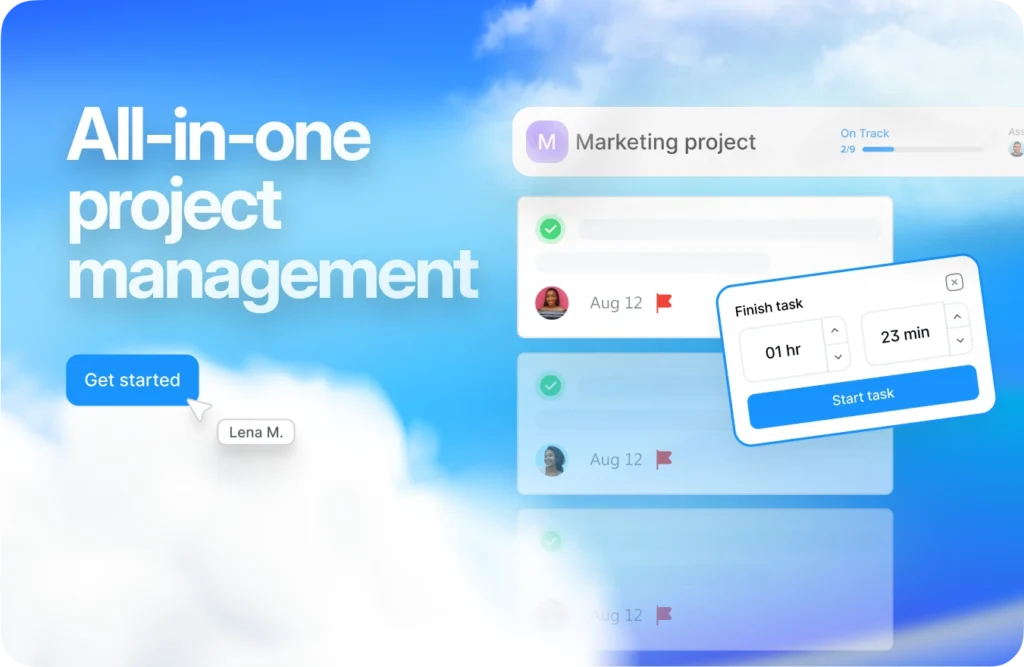What is B2C Business Model? Definition and Types

Have you ever wondered how companies like Amazon, Netflix, and Uber manage to serve millions of customers seamlessly? The secret lies in their business-to-consumer (B2C) model, which focuses on delivering products and services directly to end consumers. Buckle up, because we’re about to dive into the fascinating world of B2C businesses!
What is a B2C Business Model?
A B2C business model refers to a company’s strategy of selling goods or services directly to individual consumers, rather than other businesses (B2B model). In this model, the customer is the final user of the product or service. Think of it as a direct line between the company and you, the consumer!
Companies like Amazon, the e-commerce giant, and Walmart, the retail behemoth, are prime examples of successful B2C businesses. They have mastered the art of catering to the needs and preferences of individual consumers.

Key Characteristics of B2C Business Models
B2C business models are characterized by:
- Direct interaction with end consumers: Companies engage directly with their customers through various channels, including physical stores, e-commerce platforms, and social media.
- Focus on marketing strategy and branding: To attract and retain customers, B2C businesses invest heavily in marketing campaigns, branding strategies, and customer experience initiatives.
- Emphasis on customer satisfaction: Delivering exceptional customer service and ensuring a positive shopping experience are top priorities for B2C companies.
- Streamlined distribution channels: B2C businesses often leverage e-commerce platforms and efficient distribution networks to reach customers quickly and conveniently.
Types of B2C Business Models
The B2C landscape is diverse, with various models tailored to different consumer needs and preferences. Here are some common types:
- E-commerce (online retail): Companies like Amazon and Zappos sell products directly to consumers through their online platforms.
- Brick-and-mortar retail: Traditional physical stores, such as Walmart and Target, allow customers to browse and purchase products in person.
- Subscription-based services: Services like Netflix (streaming), Spotify (music), and Adobe Creative Cloud (software) offer subscriptions for recurring access.
- Freemium models: Companies like Dropbox and Skype provide basic services for free, while premium features require payment.
- On-demand services: Uber (ride-sharing), Grubhub (food delivery), and Airbnb (accommodation) offer convenient, on-demand services to consumers.
Advantages of B2C Business Models
Operating a B2C business comes with several advantages:
- Larger potential customer base: With direct access to individual consumers, B2C businesses have a vast pool of potential customers to target.
- Direct feedback from consumers: By interacting directly with end-users, companies can gather valuable insights and feedback to improve their products and services.
- Opportunities for brand loyalty: Providing exceptional experiences can foster customer loyalty and repeat business, leading to long-term profitability.
- Ability to adapt quickly: B2C businesses can respond swiftly to changing consumer preferences and market trends, giving them a competitive edge.
Challenges of B2C Business Models
While rewarding, B2C business models also present their fair share of challenges:
- Intense competition and price sensitivity: With numerous players vying for consumers’ attention and loyalty, price wars and competitive pressure are commonplace.
- High marketing and advertising costs: Reaching and engaging individual consumers requires significant investment in marketing and advertising campaigns.
- Managing customer expectations: Dealing with potential customer complaints, returns, and varying expectations can be a daunting task for B2C businesses.
- Constantly evolving consumer trends: Staying ahead of rapidly changing consumer behaviors and preferences is crucial for long-term success.
Strategies for Successful B2C Businesses
To thrive in the B2C landscape, businesses must adopt effective strategies, such as:
- Understanding your target audience: Conduct thorough market research to identify your target consumers’ needs, preferences, and behaviors.
- Offering exceptional customer service: Prioritize customer satisfaction by providing seamless experiences, prompt support, and effective complaint resolution.
- Leveraging social media and influencer marketing: Engage with consumers through social media platforms and collaborate with influencers to build brand awareness and loyalty.
- Continuously innovating and adapting: Stay agile by embracing new technologies, adapting to market changes, and introducing innovative products or services.
Examples of Successful B2C Companies
Let’s take a look at some industry leaders that have excelled in the B2C space:
- Amazon (E-commerce): Amazon’s customer-centric approach, vast product selection, and convenient delivery options have made it a household name in online retail.
- Netflix (Subscription-based service): By offering a vast library of movies and TV shows on demand, Netflix has revolutionized the way we consume entertainment.
- Uber (On-demand service): Uber’s ride-sharing platform provides a convenient and affordable transportation solution for millions of consumers worldwide.
Future Trends in B2C Business Models
The B2C landscape is constantly evolving, driven by technological advancements and changing consumer behaviors. Here are some future trends to watch out for:
- Personalization and customization: With the rise of data analytics and artificial intelligence, B2C businesses will increasingly offer personalized experiences tailored to individual consumer preferences.
- Seamless omnichannel experiences: Consumers expect a seamless experience across multiple channels, including physical stores, e-commerce platforms, and mobile apps.
- Sustainability and ethical practices: As consumers become more conscious of environmental and social issues, B2C businesses will need to prioritize sustainability and ethical practices to maintain customer loyalty.
Effective B2C Marketing Strategies in Online Retail
The online retail sector has become a crucial part of modern commerce. Today, both B2C (business to consumer) and B2B (business to business) transactions occur rapidly through online stores. B2C marketing strategies offer various ways to reach potential customers and boost sales.
B2C companies use diverse marketing techniques to attract and retain their target audiences. These companies often rely on online intermediaries to facilitate transactions and enhance their supply chain efficiency. Additionally, they frequently sell advertising space to generate additional revenue streams.
There are different types of B2C businesses, each catering to specific customer needs. Effective marketing strategies are essential for these companies to stand out in a competitive market. By understanding their target audiences and tailoring their approach, B2C companies can drive growth and success in the online retail space.
In the dynamic world of business, the B2C model has proven to be a powerful approach for companies to connect directly with individual consumers. By understanding their target audience, delivering exceptional customer experiences, and embracing innovation, B2C businesses can thrive in the ever-changing consumer landscape.
As we move forward, successful B2C companies will be those that prioritize personalization, seamless omnichannel experiences, and sustainable practices. So, whether you’re an established business or an aspiring entrepreneur, staying agile and customer-focused is the key to unlocking success in the B2C realm!

